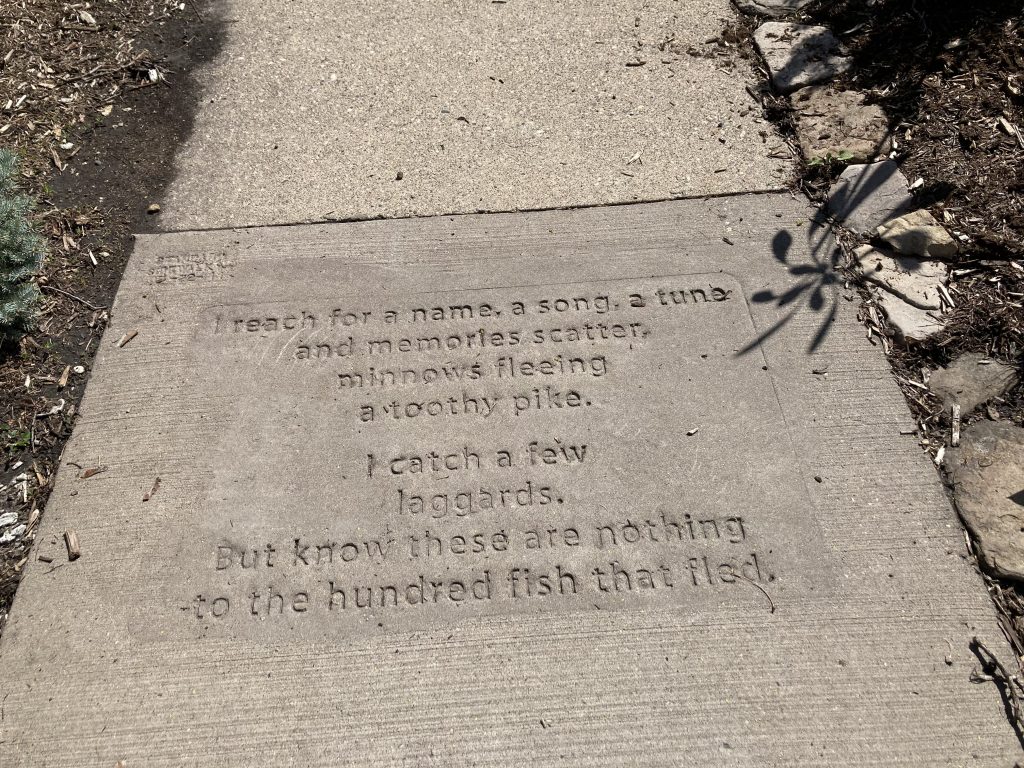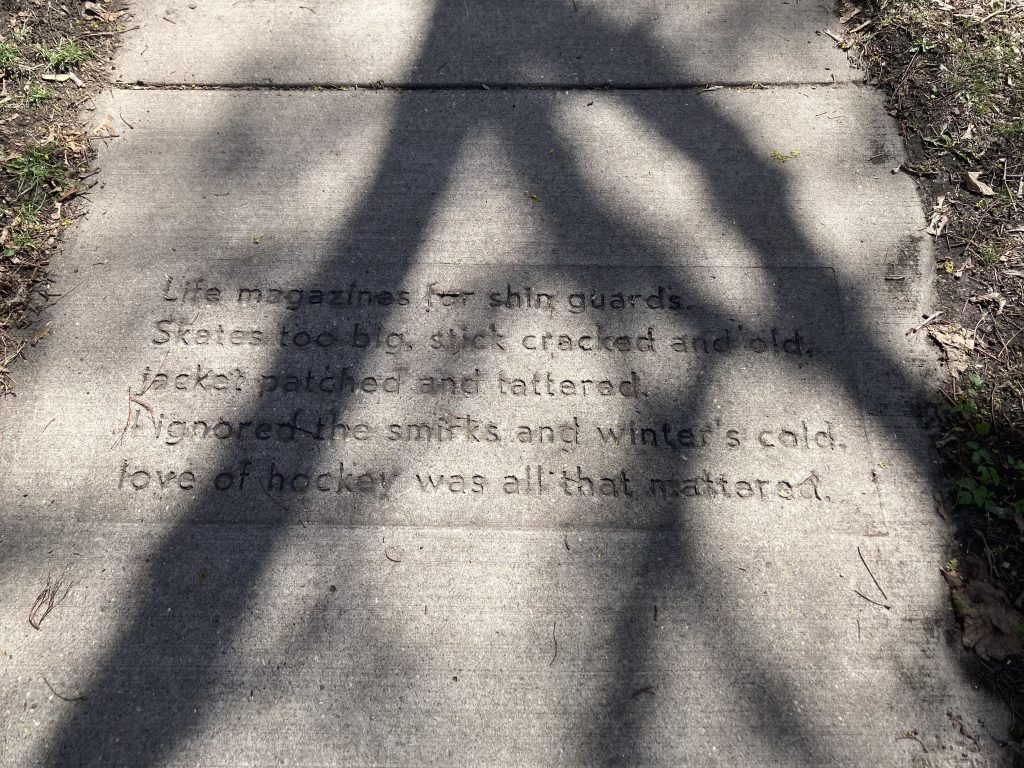4.2 miles
minnehaha falls and back
49 degrees / drizzle
wind: 7 mph / gusts: 14 mph
When I left for my run, I thought the rain had stopped. I was wrong, which was fine, because I don’t mind running in a drizzle, especially when it’s not too cold. Was it a drizzle? Maybe I’d call it a mist — a steady, soft spray that soaked my orange sweatshirt and mixed with the sweat on my face. Mostly I couldn’t see it; I just felt wet or damp or . . . I’ve got it: Moist! That’s how I felt as I ran today, moist. Scott hates this word, but I don’t mind it. What words do I detest? The only one I can think of immediately is nummy. Is that even a word?
So, everything, including me, was moist. Moist sidewalks, moist trails, moist air, moist shorts, running tights, socks. Other words for moist: soaked, damp, dank, saturated, humid
10 Moist Things
- the paved path — big puddles everywhere — the biggest puddle was right after the locks and dam no. 1 parking lot heading south
- the strip of dirt next to the paved path — muddy ruts
- the oak savanna — covered in leaves, light green and dripping
- the thick, gray air
- the laughing, water-logged voices of kids on the playground
- the slick road
- my running shoes
- my pony tail
- my orange sweatshirt
- the grass — a sponge . . . squish squish squish
A good run. I felt strong and springy — both because of the weather and my bouncy feet. I listened to the water gushing out of the sewer pipes and over the ledge as I ran to the falls. I put in my “It’s Windy” playlist on the way back. Most memorable song: The Wreck of the Edmund Fitzgerald (11 on the Beaufort Scale for violent storm).
before the run
It’s almost the end of April (wow) and this morning, before my run, I finished my Beaufort Scale in Verse:
Beaufort Scale in Verse
0 — The Moment/Marie Howe
The whir of I should be, I should be, I should be
slows to silence,
the white cotton curtains hanging still.
1 — Long Life/Mary Oliver
We may be touched by the most powerful of suppositions—even to a certainty—as we stand in the rose petals of the sun and hear a murmur from the wind no louder than the sound it makes as it dozes under the bee’s winds. This, too, I suggest, is weather, and worthy of report.
2 — Nature Aria/Yi Lei
Autumn wind chases in
From all directions
And a thousand chaste leaves
Give way.
3 — And All Visible Signs Swept Away/Carl Phillips
I am stirred, I’m stir-able, I’m a wind-stirred thing
3 — When the Fact of Your Gaze Means Nothing, They You Are truly Alongside/Donika Kelly
the dry
sound of applause: leaves chapped/falling, an ending
4 — Enough/Jeffrey Harrison
The rising wind pulls you out of it,/and you look up to see a cloud of leaves
wheeling in sunlight, flickering against the blue
and lifting above the treetops, as if the whole day
were sighing, Let it go, let it go,
for this moment at least, let it all go
5 — Love Song for the Square Root of Negative One/Richard Siken
I am the wind and the wind is invisible, all the leaves tremble and I am invisible
6 — Wind/Emily Dickinson
When winds go round and round in bands,
And thrum upon the door,
And birds take places overhead,
To bear them orchestra
7 — Who Has the Wind?/Christina Rossetti
Who has seen the wind?
Neither You nor I:
But when the trees bow down their heads,
the wind is passing by
8 — Fall/Edward Hirsch
Suddenly feel something invisible and weightless
Touching our shoulders, sweeping down from the air:
It is the autumn wind pressing against our bodies
9 — Plea to the Wind/Alice Oswald
Unglue the fog from the woods from the waist up
And speak disparagingly of leaves
10 — Plea to the Wind/Alice Oswald
Whip the green cloth off the hills
11 — Postscript/Seamus Heaney
So that the ocean on one side is wild
With foam and glitter. . .
As big soft buffetings come at the car sideways
And catch the heart off guard and blow it open.
12 — Wave After Wave/M. Bartley Seigel
In a heartbeat, rollers mass two stories
trough to insatiate tempest, unquelled
by prayer nor cigarette, careless, mean,
a cold-blooded indifference so pure,
a strong swimmer won’t last ten wet minutes.
At the Keweenaw, surf pummels the stamp
sands with ochre fists, ore boats stack up lee
of the stone, and entire beaches stand up
to walk away.

